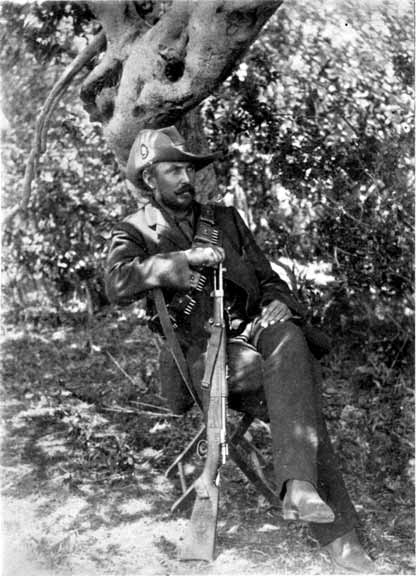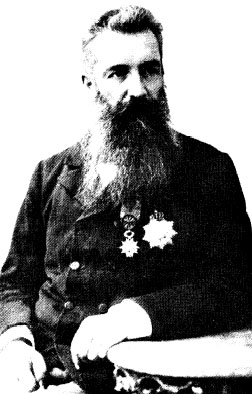|
Willem Eduard Bok Jr.
Willem Eduard Bok, Jr. (1 January 1880 in Pretoria, South African Republic – 29 October 1956 in Pretoria, Union of South Africa) was a South African lawyer, statesman and judge of Dutch descent. Biography Career Bok studied law in England, before setting up a law practice in his home town of Pretoria. He was the private secretary of general Louis Botha. Later in life Bok became a justice of the Supreme Court of the Union of South Africa. Family Bok was the eldest son of Willem Eduard Bok (1846–1904), State Secretary of the South African Republic The State Secretary of the South African Republic (Transvaal) was the principal administrative officer of that republic, officially known as the Zuid-Afrikaansche Republiek The South African Republic ( nl, Zuid-Afrikaansche Republiek, abbrevia ..., and Martina Gerardina Johanna Eekhout (1856–1910). He married in Pretoria 19 December 1907 with Maria Everdina Jacoba Kleyn (1880–1975), with whom he had four children. Refe ... [...More Info...] [...Related Items...] OR: [Wikipedia] [Google] [Baidu] |
Pretoria
Pretoria () is South Africa's administrative capital, serving as the seat of the Executive (government), executive branch of government, and as the host to all foreign embassies to South Africa. Pretoria straddles the Apies River and extends eastward into the foothills of the Magaliesberg mountains. It has a reputation as an academic city and center of research, being home to the Tshwane University of Technology (TUT), the University of Pretoria (UP), the University of South Africa (UNISA), the Council for Scientific and Industrial Research (CSIR), and the Human Sciences Research Council. It also hosts the National Research Foundation (South Africa), National Research Foundation and the South African Bureau of Standards. Pretoria was one of the host cities of the 2010 FIFA World Cup. Pretoria is the central part of the City of Tshwane Metropolitan Municipality which was formed by the amalgamation of several former local authorities, including Bronkhorstspruit, Centurion, Gaute ... [...More Info...] [...Related Items...] OR: [Wikipedia] [Google] [Baidu] |
South African Republic
The South African Republic ( nl, Zuid-Afrikaansche Republiek, abbreviated ZAR; af, Suid-Afrikaanse Republiek), also known as the Transvaal Republic, was an independent Boer Republic in Southern Africa which existed from 1852 to 1902, when it was annexed into the British Empire as a result of the Second Boer War. The ZAR was established as a result of the 1852 Sand River Convention, in which the Government of the United Kingdom, British government agreed to formally recognise independence of the Boers living north of the Vaal River. Relations between the ZAR and Britain started to deteriorate after the British Cape Colony expanded into the Southern African interior, eventually leading to the outbreak of the First Boer War between the two nations. The Boer victory confirmed the ZAR's independence; however, Anglo-ZAR tensions soon flared up again over various diplomatic issues. In 1899, war again broke out between Britain and the ZAR, which was swiftly occupied by the British mil ... [...More Info...] [...Related Items...] OR: [Wikipedia] [Google] [Baidu] |
Union Of South Africa
The Union of South Africa ( nl, Unie van Zuid-Afrika; af, Unie van Suid-Afrika; ) was the historical predecessor to the present-day Republic of South Africa. It came into existence on 31 May 1910 with the unification of the Cape, Natal, Transvaal, and Orange River colonies. It included the territories that were formerly a part of the South African Republic and the Orange Free State. Following World War I, the Union of South Africa was a signatory of the Treaty of Versailles and became one of the founding members of the League of Nations. It was conferred the administration of South West Africa (now known as Namibia) as a League of Nations mandate. It became treated in most respects as another province of the Union, but it never was formally annexed. Like Canada, Australia and New Zealand, the Union of South Africa was a self-governing dominion of the British Empire. Its full sovereignty was confirmed with the Balfour Declaration of 1926 and the Statute of Westminster 1931. ... [...More Info...] [...Related Items...] OR: [Wikipedia] [Google] [Baidu] |
Willem Eduard Bok
Willem Eduard Bok, also known as W. Eduard Bok (Den Burg, Texel, Netherlands, 28 June 1846 – Johannesburg, Transvaal Colony, 1 November 1904) was a Dutch-born South African Boer politician, civil servant and statesman, who served as first State Secretary of the South African Republic (Transvaal) from 1880 to 1889. Biography Career Bok started his career as sales-agent in Zaandam, Netherlands. In 1876 he moved to Pretoria, where he gained the confidence of Paul Kruger and Piet Joubert, and acted as their secretary during negotiations about the position of the Transvaal in 1877-1878. At the declaration of independence he became the first State Secretary of the South African Republic, a position he would hold for almost a decade. Afterwards he was appointed Government Commissioner in Johannesburg. In his capacity as State Secretary Bok registered the gold claims in the East Rand area of the Transvaal.Keller, BillBoksburg's Goofy White Smiles.''New York Times'' September 19, 1 ... [...More Info...] [...Related Items...] OR: [Wikipedia] [Google] [Baidu] |
Louis Botha
Louis Botha (; 27 September 1862 – 27 August 1919) was a South African politician who was the first prime minister of the Union of South Africa – the forerunner of the modern South African state. A Boer war hero during the Second Boer War, he eventually fought to have South Africa become a British Dominion. Early life Louis Botha was born in Greytown, Natal one of 13 children born to Louis Botha Senior (26 March 1827 – 5 July 1883) and Salomina Adriana van Rooyen (31 March 1829 – 9 January 1886). He briefly attended the school at Hermannsburg before his family relocated to the Orange Free State. The name Louis runs throughout the family, with every generation since General Louis Botha having the eldest son named Louis. Botha had a younger brother Chris (1864-1902), who was a police officer and like Louis a military commander in the Second Boer War. Zulu conflict Louis Botha led "Dinuzulu's Volunteers", a group of Boers that had supported Dinuzulu against Zibhebhu i ... [...More Info...] [...Related Items...] OR: [Wikipedia] [Google] [Baidu] |
State Secretary Of The Transvaal
The State Secretary of the South African Republic (Transvaal) was the principal administrative officer of that republic, officially known as the Zuid-Afrikaansche Republiek The South African Republic ( nl, Zuid-Afrikaansche Republiek, abbreviated ZAR; af, Suid-Afrikaanse Republiek), also known as the Transvaal Republic, was an independent Boer Republic in Southern Africa which existed from 1852 to 1902, when it .... See also * State President of the South African Republic * State Attorney of the South African Republic References Bibliography * {{refend South African Republic ... [...More Info...] [...Related Items...] OR: [Wikipedia] [Google] [Baidu] |
1880 Births
Year 188 (CLXXXVIII) was a leap year starting on Monday of the Julian calendar. At the time, it was known in the Roman Empire as the Year of the Consulship of Fuscianus and Silanus (or, less frequently, year 941 ''Ab urbe condita''). The denomination 188 for this year has been used since the early medieval period, when the Anno Domini calendar era became the prevalent method in Europe for naming years. Events By place Roman Empire * Publius Helvius Pertinax becomes pro-consul of Africa from 188 to 189. Japan * Queen Himiko (or Shingi Waō) begins her reign in Japan (until 248). Births * April 4 – Caracalla (or Antoninus), Roman emperor (d. 217) * Lu Ji (or Gongji), Chinese official and politician (d. 219) * Sun Shao, Chinese general of the Eastern Wu state (d. 241) Deaths * March 17 – Julian, pope and patriarch of Alexandria * Fa Zhen (or Gaoqing), Chinese scholar (b. AD 100) * Lucius Antistius Burrus, Roman politician (executed) * Ma Xiang, Chin ... [...More Info...] [...Related Items...] OR: [Wikipedia] [Google] [Baidu] |
1956 Deaths
Events January * January 1 – The Anglo-Egyptian Sudan, Anglo-Egyptian Condominium ends in Sudan. * January 8 – Operation Auca: Five U.S. evangelical Christian Missionary, missionaries, Nate Saint, Roger Youderian, Ed McCully, Jim Elliot and Pete Fleming, are killed for trespassing by the Huaorani people of Ecuador, shortly after making contact with them. * January 16 – Egyptian leader Gamal Abdel Nasser vows to reconquer Palestine (region), Palestine. * January 25–January 26, 26 – Finnish troops reoccupy Porkkala, after Soviet Union, Soviet troops vacate its military base. Civilians can return February 4. * January 26 – The 1956 Winter Olympics open in Cortina d'Ampezzo, Italy. February * February 11 – British Espionage, spies Guy Burgess and Donald Maclean (spy), Donald Maclean resurface in the Soviet Union, after being missing for 5 years. * February 14–February 25, 25 – The 20th Congress of the Communist Party of the Soviet Union is held in Mosc ... [...More Info...] [...Related Items...] OR: [Wikipedia] [Google] [Baidu] |
People From Pretoria
A person ( : people) is a being that has certain capacities or attributes such as reason, morality, consciousness or self-consciousness, and being a part of a culturally established form of social relations such as kinship, ownership of property, or legal responsibility. The defining features of personhood and, consequently, what makes a person count as a person, differ widely among cultures and contexts. In addition to the question of personhood, of what makes a being count as a person to begin with, there are further questions about personal identity and self: both about what makes any particular person that particular person instead of another, and about what makes a person at one time the same person as they were or will be at another time despite any intervening changes. The plural form "people" is often used to refer to an entire nation or ethnic group (as in "a people"), and this was the original meaning of the word; it subsequently acquired its use as a plural form of per ... [...More Info...] [...Related Items...] OR: [Wikipedia] [Google] [Baidu] |
South African People Of Dutch Descent
South is one of the cardinal directions or compass points. The direction is the opposite of north and is perpendicular to both east and west. Etymology The word ''south'' comes from Old English ''sūþ'', from earlier Proto-Germanic ''*sunþaz'' ("south"), possibly related to the same Proto-Indo-European root that the word ''sun'' derived from. Some languages describe south in the same way, from the fact that it is the direction of the sun at noon (in the Northern Hemisphere), like Latin meridies 'noon, south' (from medius 'middle' + dies 'day', cf English meridional), while others describe south as the right-hand side of the rising sun, like Biblical Hebrew תֵּימָן teiman 'south' from יָמִין yamin 'right', Aramaic תַּימנַא taymna from יָמִין yamin 'right' and Syriac ܬܰܝܡܢܳܐ taymna from ܝܰܡܝܺܢܳܐ yamina (hence the name of Yemen, the land to the south/right of the Levant). Navigation By convention, the ''bottom or down-facing side'' of a ... [...More Info...] [...Related Items...] OR: [Wikipedia] [Google] [Baidu] |
South African Judges
South is one of the cardinal directions or compass points. The direction is the opposite of north and is perpendicular to both east and west. Etymology The word ''south'' comes from Old English ''sūþ'', from earlier Proto-Germanic ''*sunþaz'' ("south"), possibly related to the same Proto-Indo-European root that the word ''sun'' derived from. Some languages describe south in the same way, from the fact that it is the direction of the sun at noon (in the Northern Hemisphere), like Latin meridies 'noon, south' (from medius 'middle' + dies 'day', cf English meridional), while others describe south as the right-hand side of the rising sun, like Biblical Hebrew תֵּימָן teiman 'south' from יָמִין yamin 'right', Aramaic תַּימנַא taymna from יָמִין yamin 'right' and Syriac ܬܰܝܡܢܳܐ taymna from ܝܰܡܝܺܢܳܐ yamina (hence the name of Yemen, the land to the south/right of the Levant). Navigation By convention, the ''bottom or down-facing side'' of a ... [...More Info...] [...Related Items...] OR: [Wikipedia] [Google] [Baidu] |




_1938.jpg)
